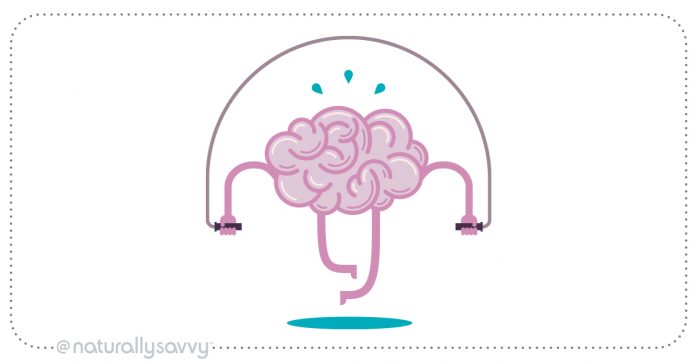
Although scientists have not been successful thus far in finding medications that can stop or prevent the scourge of Alzheimer’s disease, there is a glimmer of hope that comes in the form of the “E” word: exercise. Could engaging in physical activity be an effective way to save the brain from Alzheimer’s disease?
Nearly 47 million people around the world had Alzheimer’s disease in 2015. It’s been projected that more than 131 million people around the world will be affected by 2050. Conventional medicine has yet to come up with effective full-proof prevention and treatment plans so people are looking to lifestyle changes, including diet (with the Mediterranean diet being one recommendation), exercise, and stress reduction.
Read about natural ways to prevent, delay, or even reverse Alzheimer’s disease
Recently, investigators found that physical exercise can help improve the environment in the brains of mice with Alzheimer’s disease, making it possible for new nerve cells to enable improvements in memory and learning. According to a report in Scientific American, “these findings imply that pharmacological agents that enrich the hippocampal environment to boost cell growth and survival might be effective to recuperate brain health and function in human Alzheimer’s disease patients.”
Here’s the scenario. The brain of people who have Alzheimer’s disease is characterized by toxic substances called neurofibrillary tangles and amyloid plaques, which are believed to contribute to and/or cause the dramatic loss of memory and other cognitive function associated with the disease. Thus far experts have been unable to successfully manage these factors, especially amyloid plaques, and restore brain function.
One of the many other prevention and treatment avenues investigators have been pursuing is the effect of exercise on the disease. Thus far there is some evidence that exercise can trigger biochemical changes in the brain that may heal the health of nerve cells. Some evidence also exists—at least in animals—that exercise can induce adult hippocampal neurogenesis, which means improved growth of nerve cells and messaging with the hippocampus, the area of the brain involved in memory.
Based on this and other research, a team of scientists set out to determine whether exercise might be a reasonable therapeutic approach for Alzheimer’s disease to help restore brain function. Using animal models, they discovered that mice that exercised had better memory than those that were sedentary. The reason: the exercised mice had improved adult hippocampal neurogenesis and a higher level of a protein molecule called BDNF (brain-derived neurotrophic factor).
Read more about BDNF promotes brain health
In addition, the researchers were able to recover memory and other brain function in mice with Alzheimer’s disease but without exercise by administering a combination of virus (a genetic factor) and drugs. The authors concluded that these findings provided proof that using drugs that raise adult hippocampal neurogenesis and BDNF levels could help prevent or modify Alzheimer’s disease.
What do these findings mean? One thing the researchers noted is the potential value of discovering a drug that mimics the effects of exercise (known as exercise mimetics), which would help “clean up” the brain by promoting neurogenesis and BDNF. For now, BDNF is given to animals by injecting it directly into their brain, which is not recommended for humans and indicates another method is needed.
Researchers hope to find a way to use exercise mimetics to boost adult hippocampal neurogenesis and BDNF, which will hopefully translate into an improvement in the cognition of individuals with Alzheimer’s disease. If such measures at taken early enough in the course of the disease, it could protect against any further neuron cell death and brain function loss.
Sources
Alzheimer’s Disease International. World Alzheimer’s report 2015: The global impact of dementia.
Choi SH et al. Combined adult neurogenesis and BDNF mimic exercise effects on cognition in an Alzheimer’s mouse model. Science 2018 Sep 7; 361(6406): eaan8821
Grinsein JD. How exercise might “clean” the Alzheimer’s brain. Scientific American 2018 Oct 16
Radak Z et al. Exercise plays a preventive role against Alzheimer’s disease. Journal of Alzheimer’s Disease 2010 May 26; 20(3): 777-83
Van Praag H et al. Running increases cell proliferation and neurogenesis in the adult mouse dentate gyrus. Nature Neuroscience 1999; 2:266-70










